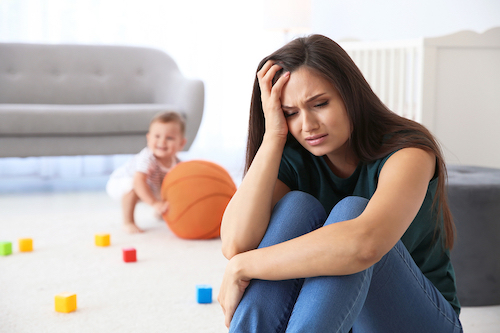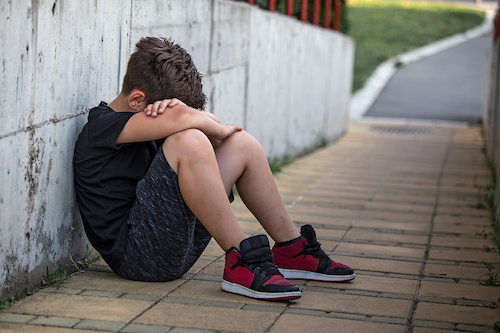March 23, 2020
by Elizabeth Pratt

Children who blame themselves for their mothers being unhappy are more likely to experience depression and anxiety.
[More]
March 18, 2020
by Elizabeth Pratt

Approximately eight in every 100 children aged between nine and 10 in the US report suicidal ideation. Risk factors include psychological problems and exposure to family conflict.
[More]
March 17, 2020
by Patricia Tomasi

A new study published in the BMJ looked at infant sleep and child mental health. “We wanted to find out if infants with very persistent sleep difficulties had increased odds of experiencing mental health difficulties during childhood,” study author Falin Cook told us. “We wanted to know if there were specific types of mental disorders that they were more likely to experience.”
[More]
February 22, 2020
by Elizabeth Pratt

Adolescents who spend too much time sitting still and engaging in sedentary behaviour are at an increased risk of depressive symptoms.
[More]
February 18, 2020
by Patricia Tomasi

Marriage is common and so is divorce. Over two million marriages occur in the U.S. per year. By the time a person turns 50 years of age, over 90 per cent of people in the U.S. have tied the knot. According to the American Psychological Association, a happy home gives a child the chance to be a healthier adult in all ways - mentally, physically, and emotionally. So what happens to teens whose parents’ divorce? Is it possible to create a happy home post-divorce? A recent Norwegian study published in the Journal of Public Health aimed to answer that question particularly when it came to divorce and conversational difficulties with parents and the effects on adolescent health and self-esteem.
[More]
January 21, 2020
by Patricia Tomasi

Imagine this: You’re five years old and you've just been given your favorite treat. Maybe it's a marshmallow or maybe it’s a lollipop. Whatever it is, you want to devour it instantly but are told that if you wait a certain amount of time and don’t eat it until that certain amount of time is up, you’ll get another treat of the same variety, thereby increasing your tally to two treats. What would you do? What would you say a five-year-old would do? And why does it matter?
[More]
January 14, 2020
by Patricia Tomasi

A recent study examined whether extreme adversity early in life can have a long-lasting impact on brain development. Previous research shows that early childhood adversity is linked to a higher risk for a wide range of neurodevelopmental and psychiatric problems later in life. This study examined whether early adversity is also linked to changes in brain structure and whether these brain changes can partly explain why some individuals develop persisting neurodevelopmental problems, such as attention-deficit/hyperactivity disorder (ADHD), following adversity while others do not
[More]
December 31, 2019
by Patricia Tomasi

If you’re wondering what new year’s resolutions to make, you might want to consider adding another spouse or two. According to a recent study of 2000 participants over two decades living in Tanzania, multiple husbands can be advantageous to women and children when times are difficult. While this scenario might not exactly play well in most relationships today, it seems that in that remote village in East Africa where the study took place, having an extra spouse can be a buffer in economic and social crises and help children live longer.
[More]
December 24, 2019
by Patricia Tomasi

After Ivana Poku became a mom, she was astonished and shocked by the reality of motherhood. “It was nothing like I had expected,” Poku told us. “I remember I could not wait to meet my twin boys and experience this immediate rush of love people were talking about. However, when that moment came, I felt nothing. I was glad they were ok. I was glad to have them, but there was no rush of love, no pure happiness, no fireworks. Immediately, I felt like a complete failure. And it didn’t get better from there.”
[More]
December 18, 2019
by Elizabeth Pratt

Students with a higher level of emotional intelligence perform better in school than their peers with lower emotional intelligence.
Research published in the Psychological Bulletin found that differences in the emotional intelligence of students is reflected in their results.
[More]